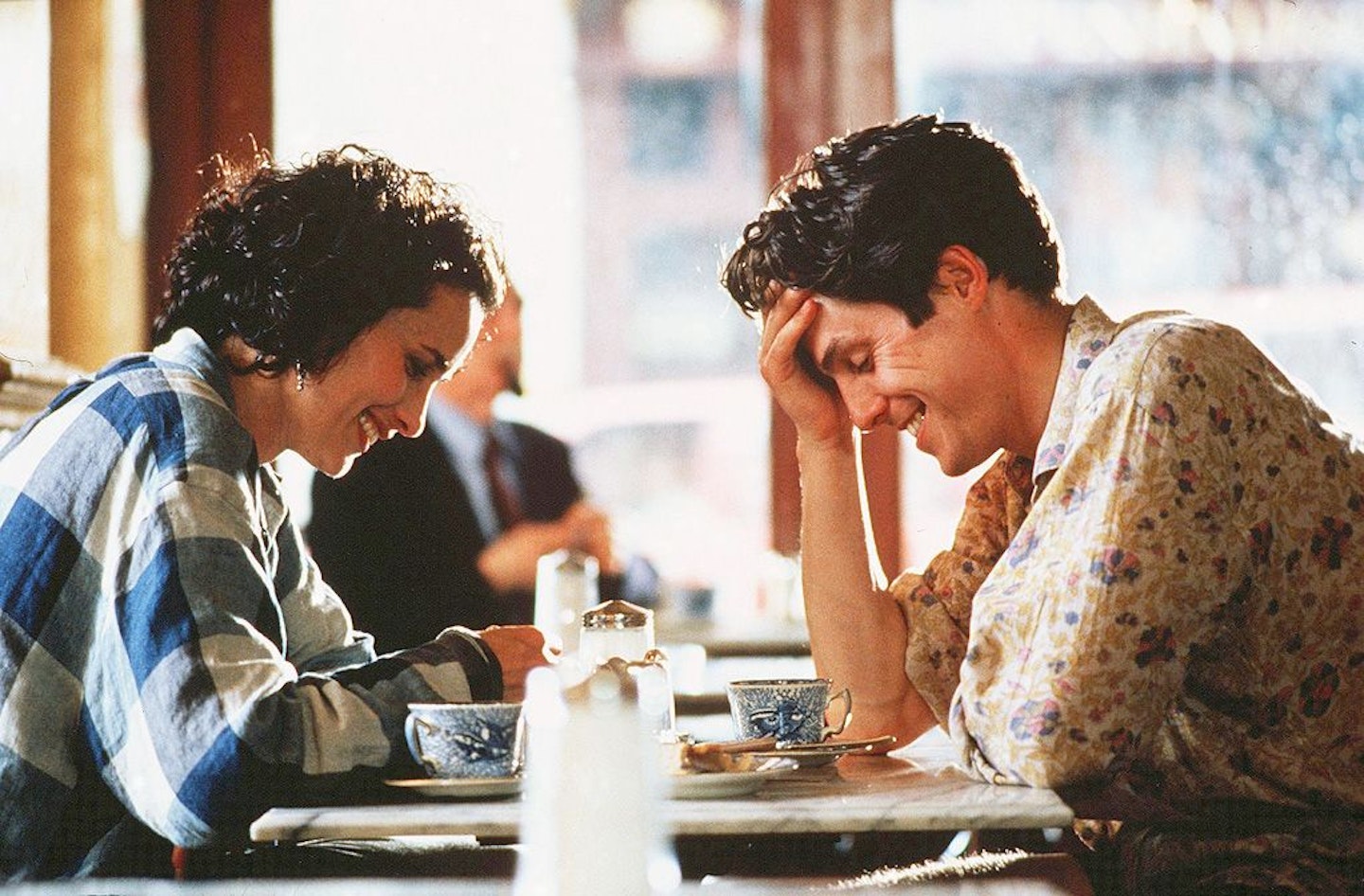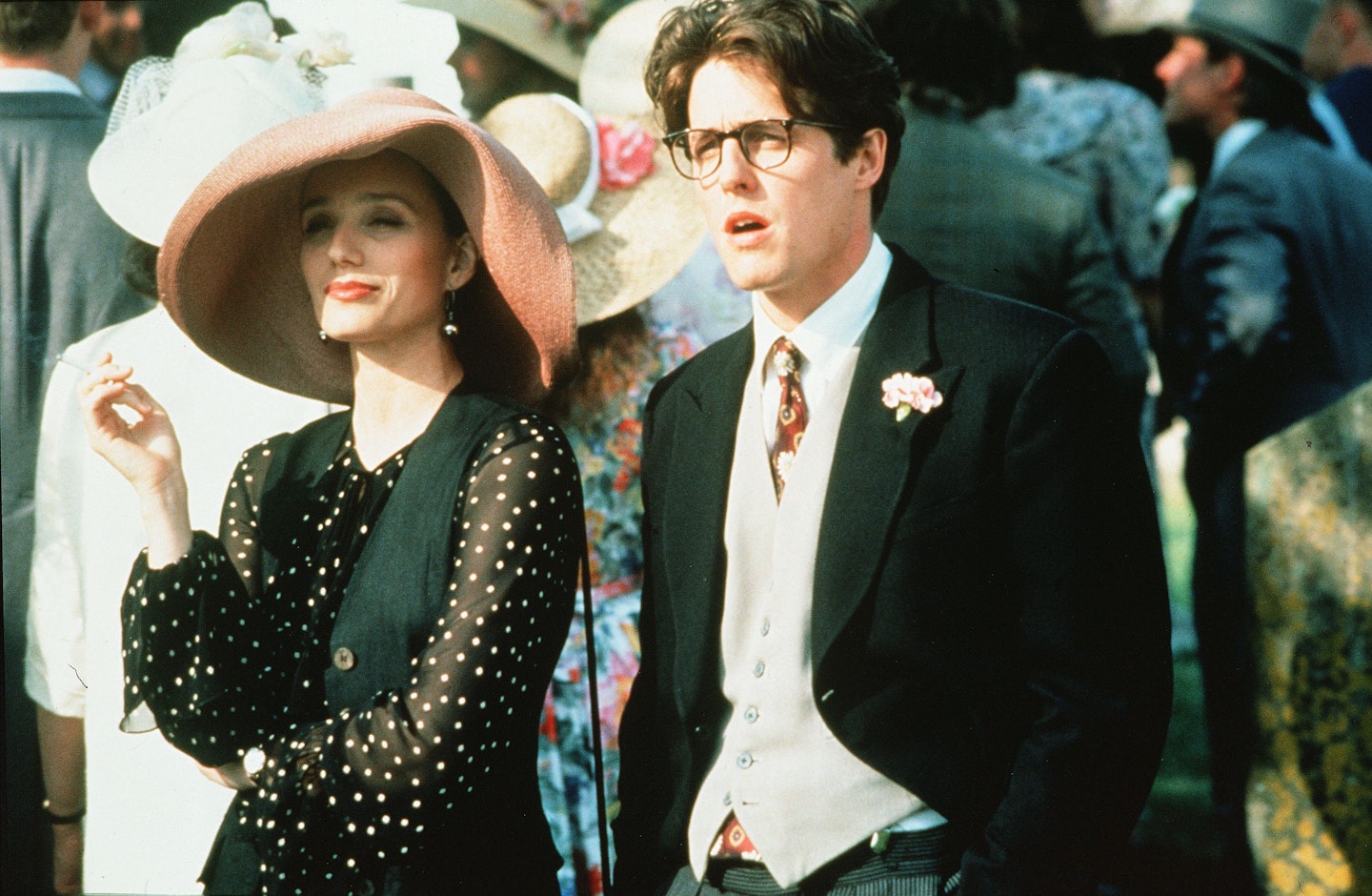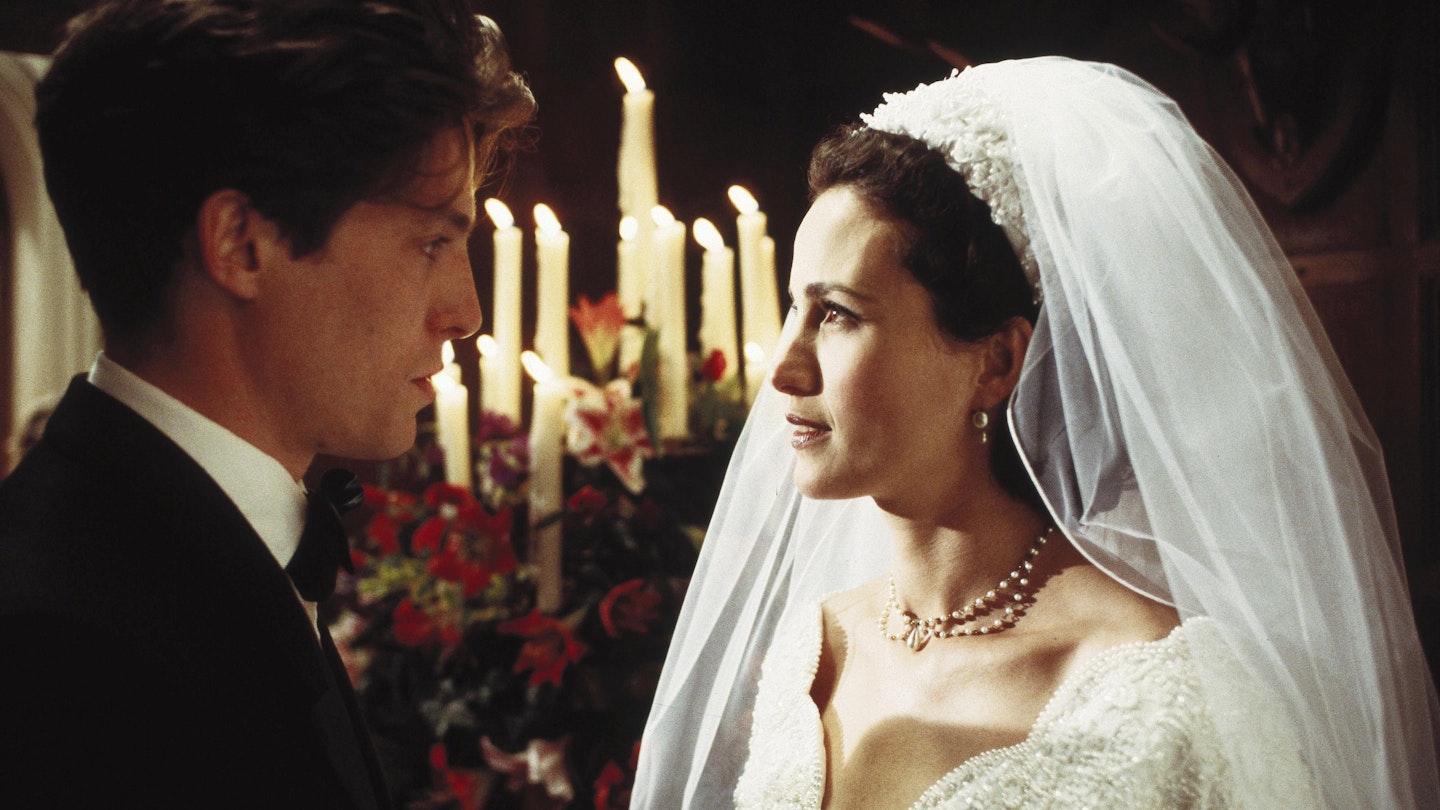‘Is it still buffering? I hadn’t noticed.’ The latest beneficiary – or victim, depending entirely on your tolerance for nostalgia – of Hollywood reboot culture is 1994 rom-com Four Weddings And A Funeral. For those blissfully unversed in the films of Richard Curtis, that’s the film that launched Hugh Grant’s floppy-haired, bumbling charm offensive onto ‘90s popular culture, culminating in a charming turn as a floppy-haired and bumbling Prime Minister in Love Actually.
Four Weddings isn’t getting a straight re-make; instead, it’ll be rebooted as a series for streaming service Hulu, developed by on-the-record rom-com fan Mindy Kaling. Curtis, who wrote the 1994 script, will be on exec producer duties, along with Working Title’s Tim Bevan and Eric Fellner (who produced the original, the Bridget Jones movies, and just about every other Brit-com you’ve ever ‘ironically’ sobbed to after cultivating a Bridget-esque Chardonnay habit). According to Variety, the series will (like the film) follow ‘a group of friends as their lives intersect through these five events’ (ie. four weddings, then a funeral). This being 2017, the new Four Weddings is pitched as an anthology series: each season is imagined as ‘following a different story arc’ and featuring a different set of characters, all potentially cohering around one lead.
Doesn’t this all sound like a West London fever dream cooked up by the fictional commissioning department in BBC mockumentary W1A, interpreted by way of Hollywood? A rom-com series headed up by Mindy Kaling should feel like a majorly exciting proposition. Her writing on relationships, life milestones and female friendships, whether in her essays or on her shows, is incisive, warm and (crucially) actually funny – so why commission a re-treading of someone else’s story, rather than an original idea?

Deploying the ‘anthology’ buzzword does, of course, give Mindy the space to make Four Weddings her own: we’re very much in the guessing stages, but it seems the show won’t follow the original’s plot points to the letter (please, please do not pick up any storylines centring around calling a grown woman ‘Duckface.’ Anna Chancellor deserved better). But when the lack of female showrunners working in the TV industry is so well-documented, it seems egregiously risk-averse to give one of those few women a project that’s so blatantly riding on ‘90s nostalgia.
Let’s talk about that risk aversion a little further. This year, barely a week has gone by without the announcement of a new re-treading of someone’s favourite ‘80s, ‘90s or even ‘00s pop culture property. A The Craft re-boot is in the works, along with a TV re-imagining of Heathers; a Joan Collins-less Dynasty, helmed by the duo behind Gossip Girl, arrived on Netflix last month, this summer’s Dirty Dancing TV movie was panned by critics and the new season of _Will and Grac_e has aired to… total indifference. A Cruel Intentions series was announced by NBC in the US last year, then officially dropped by the channel a few months back. And all that’s without even mentioning Disney’s new-found mania for endlessly re-making its own back catalogue (Guy Ritchie’s Aladdin: the film literally no one asked for), or the industry-wide penchant for ‘gender-flipped’ reboots as a glossy mask for the downright tedious lack of meaningful, interesting stories about women. As with the much-vaunted example of the all-female Ocean’s Eight, it’s hard to make a re-make of a re-make seem remotely ‘empowering,’ whatever gushy line Anne Hathaway wants to feed us.

For the Disney movies, re-boot culture is an astute financial move: Beauty and the Beast will end the year as one of its highest grossing films, in no part thanks to nostalgia-hungry millennials who grew up on this animated mythology. But in too many cases, reboots are lazy commissions with even lazier end products, displaying an industry-wide unwillingness to take a gamble on anything new and – whisper it – exciting. Twin Peaks aside, the most discussed shows of 2017 haven’t re-booted old formats: instead, they’ve either adapted strikingly relevant stories for the screen (see The Handmaid’s Tale, Big Little Lies) or told entirely new ones. Seriously: is anyone you know talking about Will and Grace right now?
And as for that well-used anti-reboot argument, that the original should be revered as an untouched work of genius? I’d use it, but it just doesn’t stand up for Four Weddings (which, ironically, might be another reason to leave it well alone). It’s home, after all, to one of the most anodyne female love interests ever: Andie MacDowell’s Carrie is probably best described as the spiritual forebear to another rubbish Curtis character, Keira ‘I look quite pretty, don’t I?’ Knightley’s godawful Juliet in Love Actually. With a film like this, or Notting Hill, or the rest of them, I’d say that our nostalgia isn’t really a function of an abiding love for the stories or the characters (a lucrative wave which Disney can ride all the way to the bank). Instead, it’s a longing for how endearingly analogue a rom com could be in a pre-Internet era: when a Hugh Grant could bump into an Andie MacDowell at a wedding and legitimately risk never seeing her again afterwards, the stakes are higher. In a contemporary reboot, there’d be no urgency I and isn’t that why the rom-com has all but died out in the past decade? In the spirit of the original, it seems best to ditch this particular project at the altar (sorry, Duckface…)
WATCH NOW: The Ten Best Paid Actresses In Hollywood
READ MORE: The Netflix Originals Everyone Will Be Talking About In 2018
